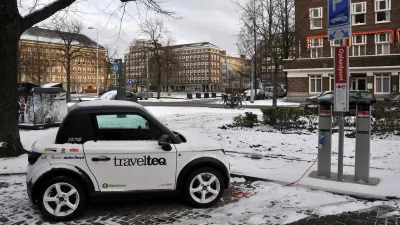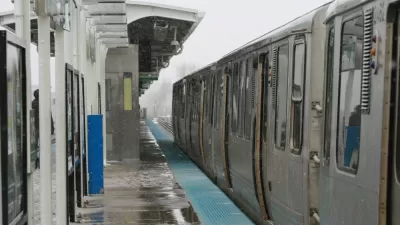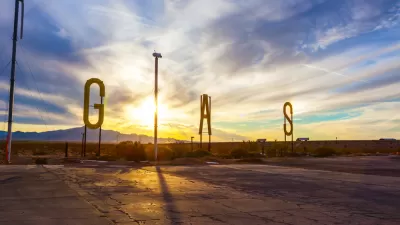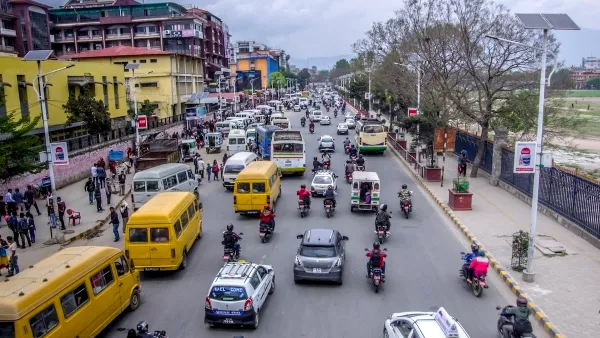There are several practical reasons people will soon be switching to plugin electrical vehicles. Judging from past examples, the shift in consumer preference will be swift and decisive, catching car manufacturers by surprise.

The everyday practical reasons to choose a plugin electric car over a gas powered car are already here. However, consumer demand for them have been underwhelming. Consumer awareness of electric vehicle advantages lags, believes San Diego land use attorney Bill Adams, using his own learning curve as an example. Much of the public is still under the impression that owning an electric vehicle is an exercise in paying more and getting less to save the climate. He predicts that consumer knowledge about the practical non-environmental advantages of purchasing an electric car will soon result in a swift and massive switch in consumer preference from gas to electric vehicles. Practical benefits include:
1) Convenience: Forget about gas stations—fuel up at home at night. Quick charging at charge stations for long trips is improving.
2) Fuel Cost: Charging up is cheaper than fueling up.
3) Reliability and maintenance cost: Fewer moving parts mean fewer repairs and less maintenance.
4) Performance: Electric vehicles have superior torque and no transmission gear change delays.
5) Tax credits and rebates: For new vehicle purchases, buyers get a $7,500 tax credit, and in California, a $2,500 rebate ($4,000 for people with income up to 3 x poverty level).
6) Infrastructure: Charging stations are relatively easy and cheap to build compared to gas stations.
7) Inevitability: The global conversion is inevitable, which itself will drive demand as consumers will not want to purchase new vehicles that will become obsolete.
For more details, see the source article.

Planetizen Federal Action Tracker
A weekly monitor of how Trump’s orders and actions are impacting planners and planning in America.

Maui's Vacation Rental Debate Turns Ugly
Verbal attacks, misinformation campaigns and fistfights plague a high-stakes debate to convert thousands of vacation rentals into long-term housing.

San Francisco Suspends Traffic Calming Amidst Record Deaths
Citing “a challenging fiscal landscape,” the city will cease the program on the heels of 42 traffic deaths, including 24 pedestrians.

Amtrak Rolls Out New Orleans to Alabama “Mardi Gras” Train
The new service will operate morning and evening departures between Mobile and New Orleans.

The Subversive Car-Free Guide to Trump's Great American Road Trip
Car-free ways to access Chicagoland’s best tourist attractions.

San Antonio and Austin are Fusing Into one Massive Megaregion
The region spanning the two central Texas cities is growing fast, posing challenges for local infrastructure and water supplies.
Urban Design for Planners 1: Software Tools
This six-course series explores essential urban design concepts using open source software and equips planners with the tools they need to participate fully in the urban design process.
Planning for Universal Design
Learn the tools for implementing Universal Design in planning regulations.
Heyer Gruel & Associates PA
JM Goldson LLC
Custer County Colorado
City of Camden Redevelopment Agency
City of Astoria
Transportation Research & Education Center (TREC) at Portland State University
Jefferson Parish Government
Camden Redevelopment Agency
City of Claremont





























